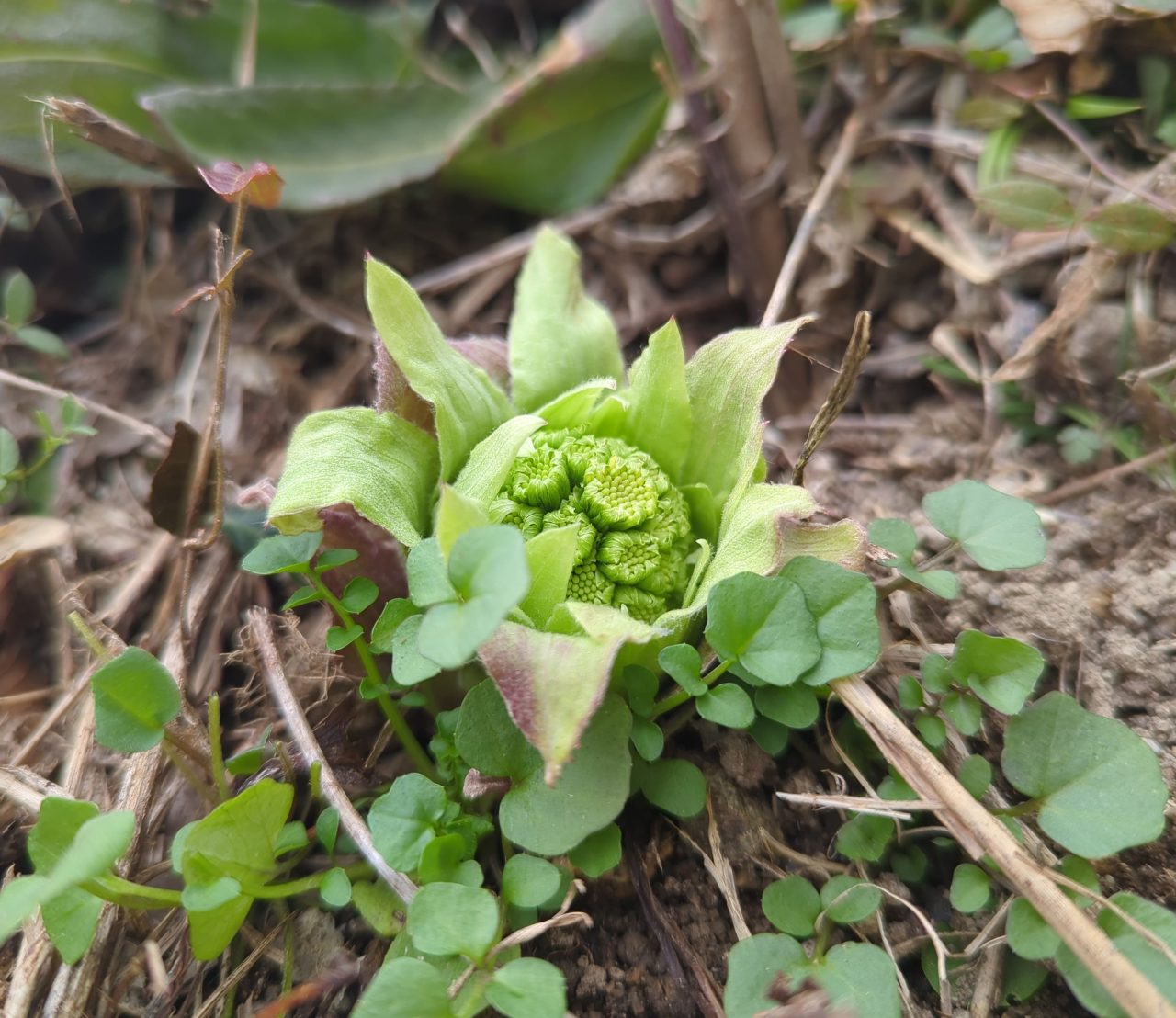March Reflection: The Spirit of Fuki-no-tō
2025.03.06.
The Spirit of Fuki-no-tō
Daiko Iizuka (Chief Priest)
Hello, everyone. This is Iizuka Daikō, the head priest of Ichibata Yakushi Temple. The long winter cold has finally passed, and I can feel the arrival of spring. As the snow begins to melt, I have spotted the first fuki-no-tō (butterbur sprouts). Soon, they will appear in abundance on the mountains surrounding Ichibata Yakushi. How about in your area?

As you may know, fuki-no-tō eventually grow into fuki (butterbur). The sprout itself is actually a flower bud. After it blooms, a separate stem grows from the ground, spreading broad green leaves—this is fuki.
Fuki-no-tō is one of the first tastes of early spring in Japan, often enjoyed as tempura or mixed into miso (fuki-miso). Not only is it delicious, but it is also packed with nutrients such as vitamin K, which supports bone health, potassium, which helps regulate salt levels, and folic acid, which can aid in preventing anemia and arteriosclerosis. I can’t wait to enjoy it myself.
You may be wondering—why am I talking about plants in a temple reflection?
Last year, Ichibata Yakushi hosted a seven-part workshop organized by the Wa Herb Association. Since it was taking place right on our temple grounds, I decided to join out of curiosity—and I was completely captivated by the world of Japanese herbs. Wa herbs refer to plants that have been a part of Japanese life since ancient times, used not only as traditional medicinal herbs but also in daily life for food, clothing, and shelter.
Through this workshop, I came to realize that the temple grounds of Ichibata Yakushi are home to many of these wa herbs, growing naturally throughout the four seasons. What I had once overlooked turned out to be a rich landscape of plants that have quietly supported Japanese life for centuries.
There is so much to learn from nature. Since ancient times, even in the era of animism, humans have held a deep sense of reverence for nature, recognizing that our lives are sustained by it. In Buddhism, this understanding is called Dharma—the natural law of existence. Realizing this truth, not just intellectually but from the depths of our hearts, is at the core of Buddhist practice.
We are living beings, nurtured by the vast flow of nature. Our lives are but a fleeting moment in the great continuum of past, present, and future—like a brief yet brilliant spark.
With each cycle of cold and warmth, spring is drawing nearer. Each day is a new beginning. Please take care and cherish each moment.
March 1, 2025
